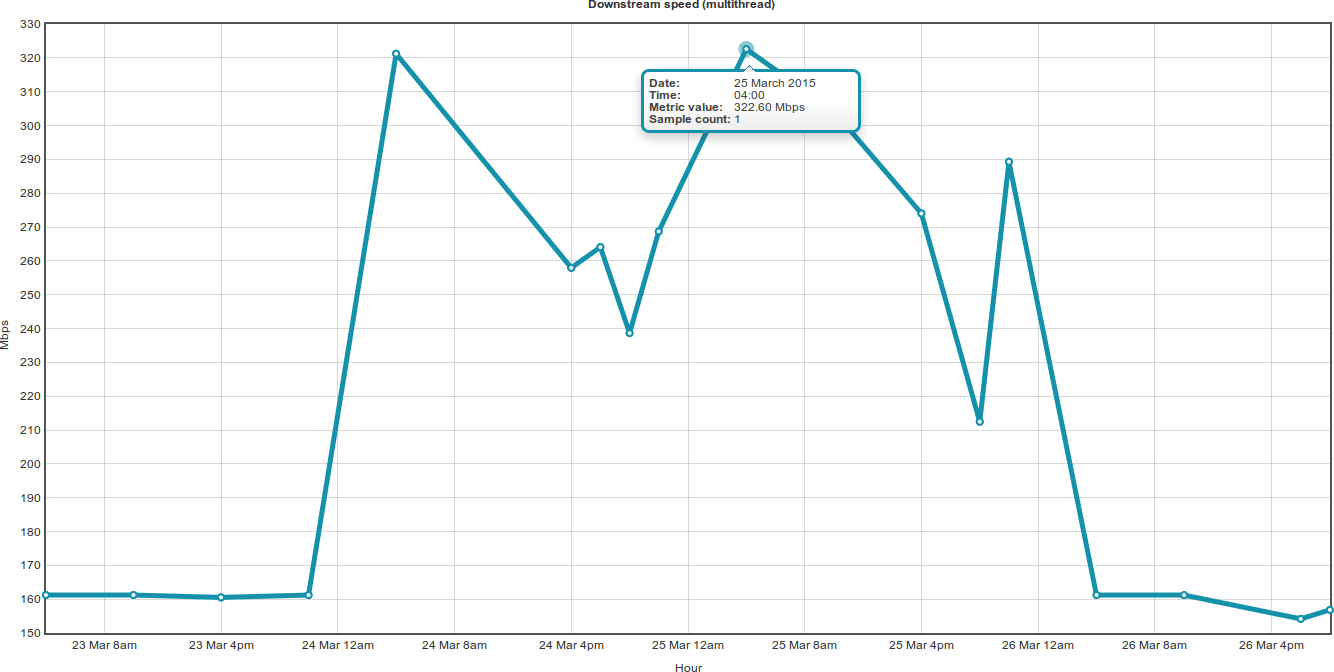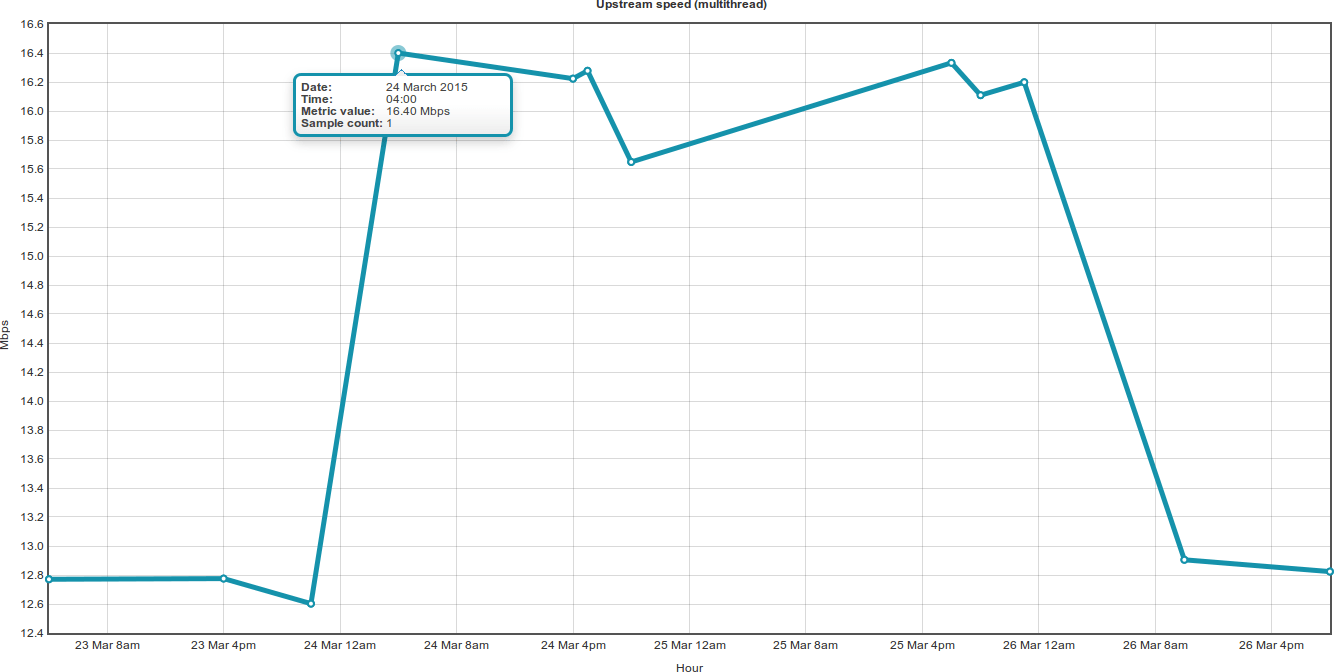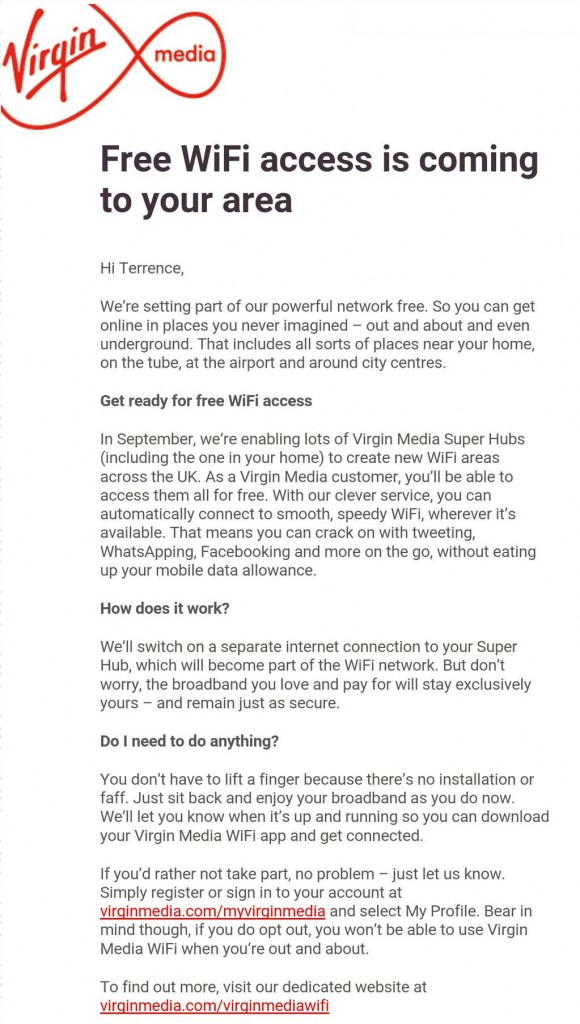Virgin Trialling 322Mpbs Broadband
Earlier this week, I noticed that Virgin Media had upgraded my 152Mbps service to a whopping 322Mbps. Sadly, it was fairly short-lived - but here's what I can tell you about it.
Using my SamKnows monitoring box, I'm able to see regular snapshots of my broadband performance. My 152Mbps service is usually rock solid - there's very little variation in its performance. Last week, however, it shot through the roof.
Whoa!
The only fly in the ointment with Virgin's speeds is their lack of decent upload bandwidth. When I was on BT's FTTC, I was able to get 20Mbps up. Pretty decent for streaming video conferences, uploading to YouTube, etc. Virgin's best upload speed is 12Mbps. But, last week, this was boosted to 16Mbps.
Because I'm a geek, I've set up a script to monitor my cable modem's power levels (no, you need a hobby. Shut up!)
Interestingly, there was no significant change in power or SNR. Additionally, the modem was still only using 2 upstream channels. 
My script isn't set up to see if the modulation has changed.
The 152Mbps is a somewhat arbitrary speed limit. As far as I can tell, it was chosen to be exactly twice as fast as BT's 76Mbps service. This 322Mbps service is, presumably, a response to BT Infinity 4's speeds of 300Mbps.
Although, yet again, the upload speed is slower. If Virgin would only activate all four upload channels - rather than the current two - they could double the speed to at least 24Mbps and finally be faster than BT.
The Official Response




 (
(
 Virgin Media's Free WiFi Sharing Comes With A Cost
Virgin Media's Free WiFi Sharing Comes With A Cost
While it may be possible to get faster, we're probably starting to hit the limit in terms of what humans can consume in the average home.
Downloading a movie in 20 seconds - but still takes 2 hours to watch it.
Latency however, that could be the next target.
Loosemore's law says tolerance of delay halves as bandwidth doubles.
IMO bandwidth is more important than computer hardware now. In the future you might hold on to a cheap, low power laptop and phone for years and the entire operating system will just be a seamless cloud stream. No local installations or updates ever.